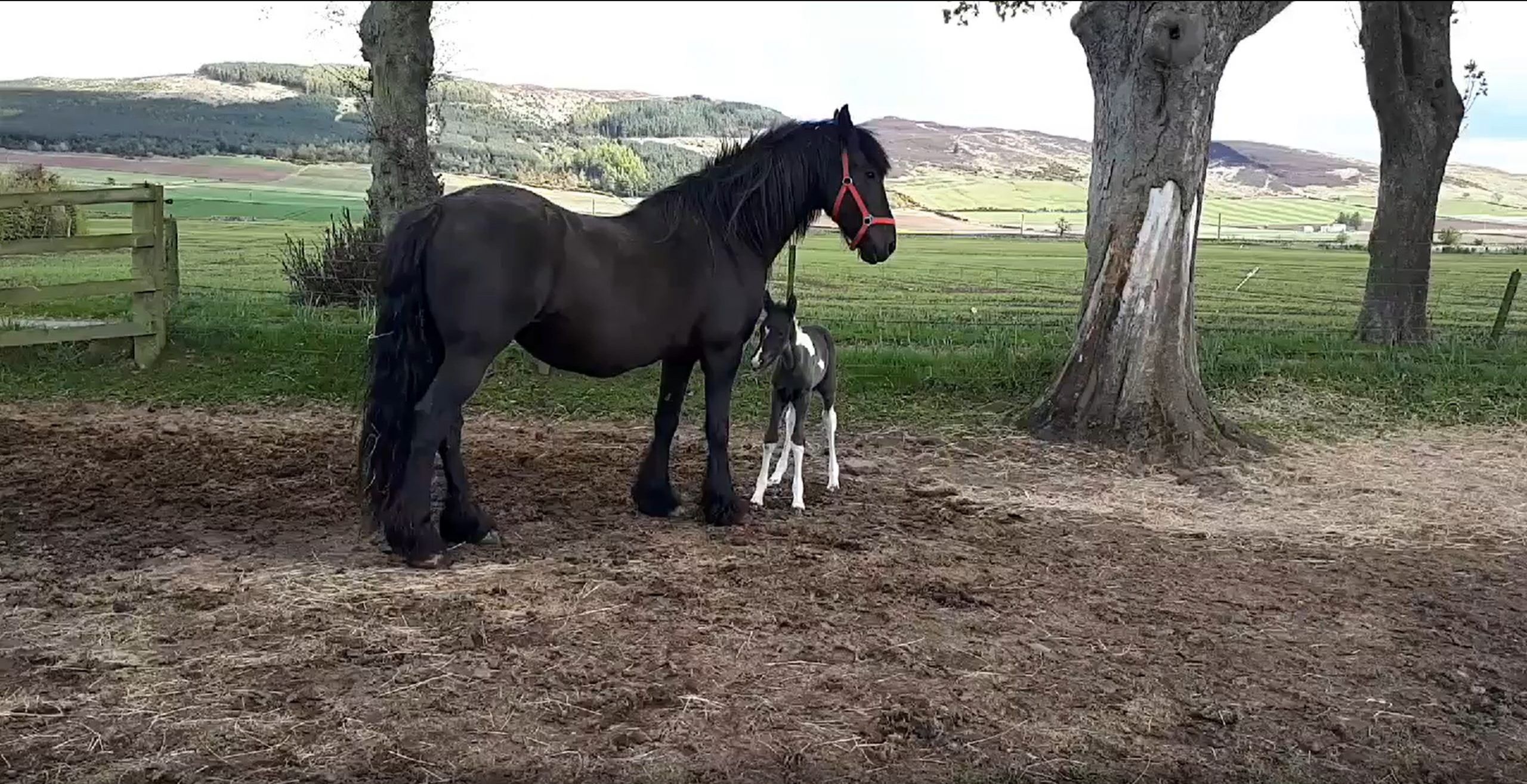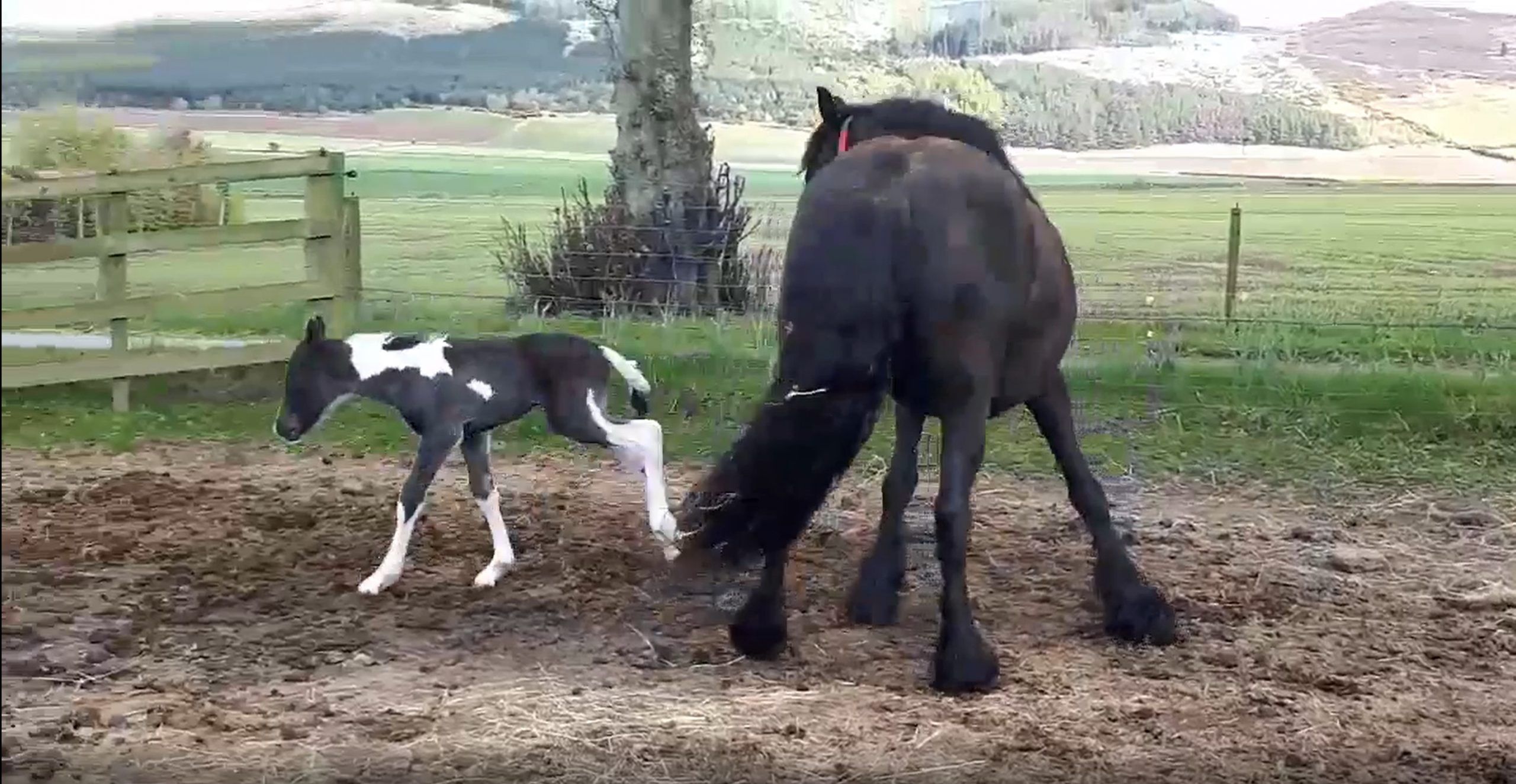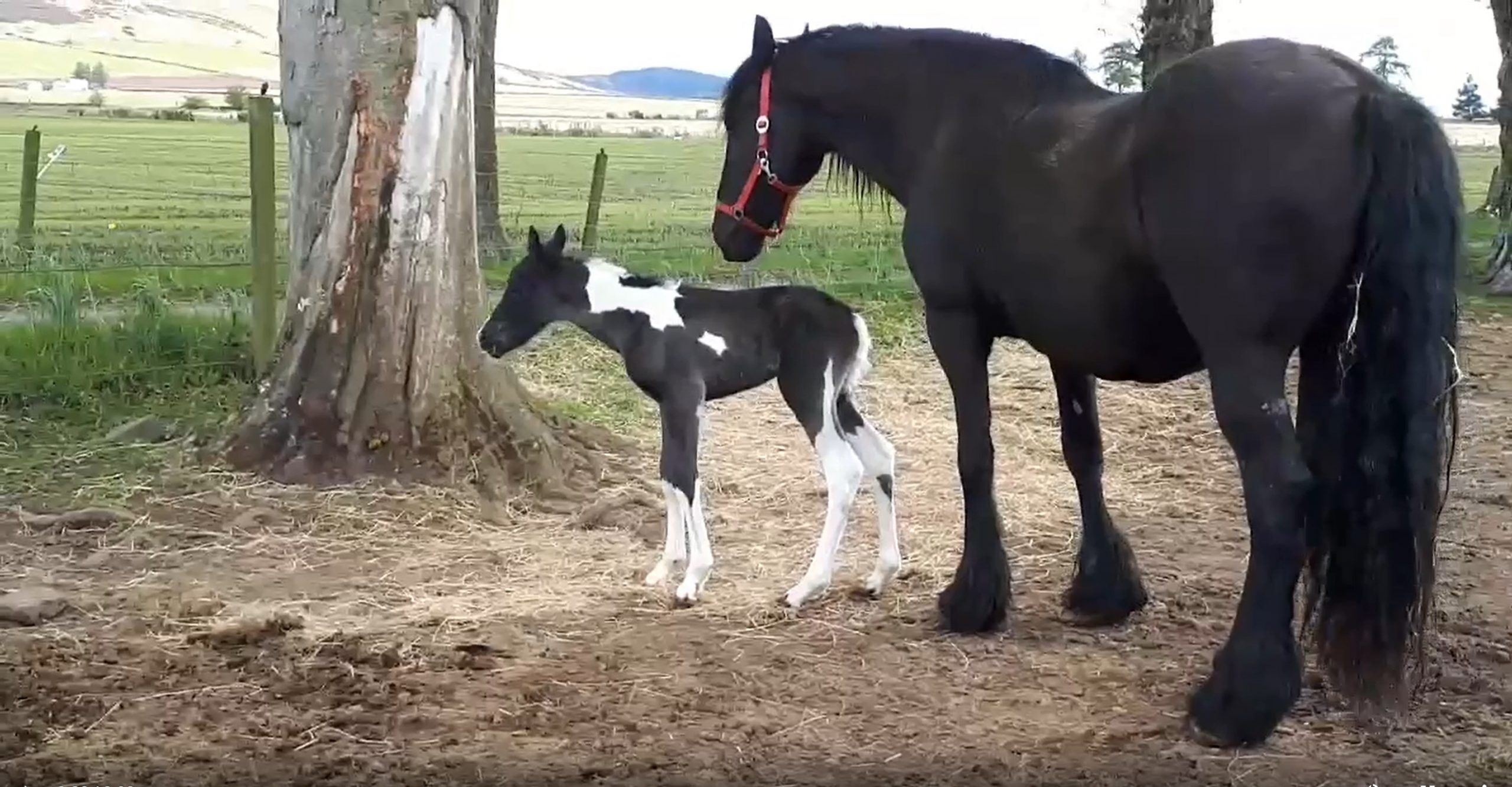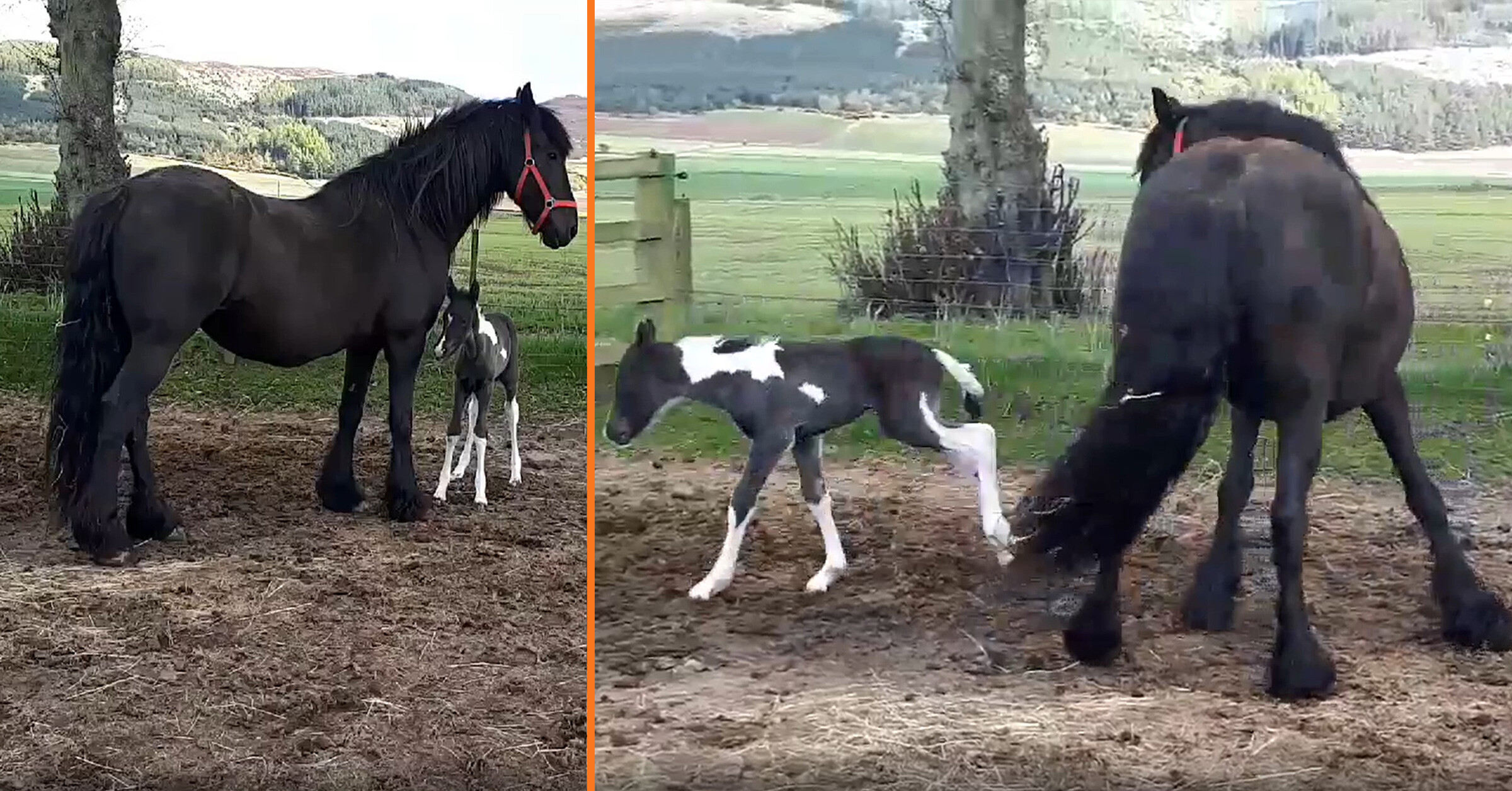If your mare is expecting a foal, you are sure to be very excited and perhaps a bit worried about how to care for the new arrival. The good news is that if you have a healthy mare and a clean, spacious environment you won’t have to do much of anything. Your mare should be able to deliver and care for her baby just fine without much interference from you. Even so, it’s wise to be prepared for all possibilities.

As soon as your new foal takes his first breath he is signaled to transition from dependent fetus to independent foal. His legs will begin moving before he is fully delivered, and he should be able to stand up and nurse within an hour or so of birth.

Most horse births go smoothly, and you may simply awaken one morning to find that you have a fine new foal in your barn or pasture. If you are present for the birth, you probably won’t have to do much of anything. Just monitor from outside the stall or several yards away in the pasture. Only step in if things seem to be going very wrong.
The day after your foal is born, your vet should visit to do a little blood work and examine your foal thoroughly. This early checkup allows your vet to correct any abnormalities that might interfere with vital functions such as breathing and swallowing. Taking care of these things right away can prevent a wide variety of complications, failure to thrive, and even death.

Within a couple of weeks, your foal will begin nibbling at grass, hay, and grain. Be sure to provide high-quality hay and nutrient-rich feed to encourage good milk production in the mother and good growth in the foal. Talk with your vet to see if vitamin and mineral supplements are recommended.
Your foal’s first month should be a happy time of play and learning about the world around him. This is a time for you to get to know your new arrival and make sure that he has a solid, healthy start in the world.”
